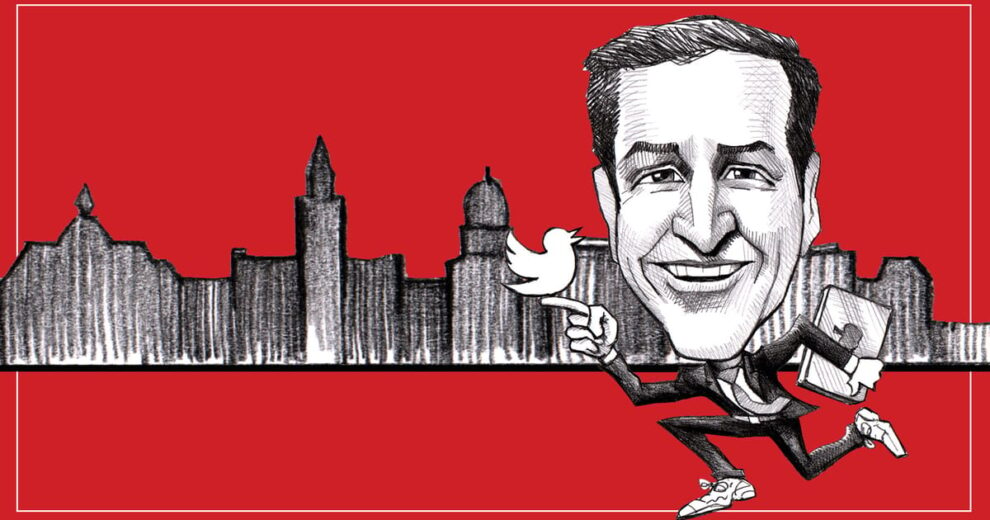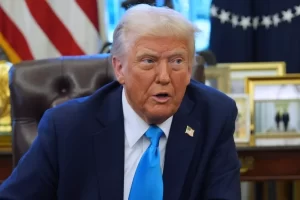HOW TO CAMPAIGN IN NEW YORK: Stay tuned today for a new episode of the series the West and its allies against Russia and its shrinking “sphere of influence’ at the United Nations HQ. Slovenia and Belarus are competing for a non-permanent seat at the U.N. Security Council. The new non-permanent member will be elected by the General Assembly in a secret ballot, for a term of two years. Many in Brussels will also be keeping an eye on it (at 4 p.m. CET).
No ‘smearing’: Slovenian Foreign Affairs Minister Tanja Fajon told Playbook her campaign strategy for the non-permanent seat. “Our focus was on running a fair, honest … bid under the slogan ‘Building Trust. Securing Future,” she said, adding that Slovenia had been “refraining from a smearing campaign” against its opponent.
UNDEAD AUSTRO-HUNGARIAN EMPIRE: The EU’s Hungarian headache may be about to get a little more intense, with neighboring Austria’s far-right Freedom Party maintaining a poll lead ahead of the country’s next election in 2024 under the leadership of a man that European Parliament President Roberta Metsola describes as “simply not trustworthy.”
Slovak to the future: There’s also an election in Slovakia in 2023 and pro-Russian Robert Fico is leading in the polls. He’s said he’d end military support for Ukraine.
**A message from Meta: Instagram’s Family Tools help parents keep teenagers safer on the app. Default Private Accounts for teenagers, Daily Time Limit, Supervision and more, work together to support under 18s and help them have a healthy experience on Instagram.**
Here comes the Kickl: Austria’s governing center-right and green coalition is unpopular, with inflation and immigration key issues for the electorate. Enter pro-Russian Herbert Kickl, an Ivermectin enthusiast who wants to turn the Alpine country into a “fortress” against migration.
The other opposition is Austria’s oldest party, the Social Democrats, which this weekend showcased its governance skills by accidentally announcing the wrong winner of its leadership contest.
What it means for Europe: European officials warn that wins by pro-Russian parties in Austria and Slovakia would hand Russian President Vladimir Putin a powerful tool to disrupt the EU’s sanctions on Russia and its efforts to assist Ukraine. “It would be a disaster,” a senior Commission official told my colleague Matthew Karnitschnig.
Bear in mind: Kickl’s victory is far from a done deal. His personal approval rating is among the lowest of all Austrian politicians. What’s more, support for the Freedom Party has proved volatile in the past and this latest spurt is likely more a sign of protest against what many Austrians see as the dysfunction of the current government than endorsement of the far-right’s policies.
Fickle on Fico: The would-be Slovak leader is also a divisive figure. He was forced from office in 2018 following mass protests. At the time, Fico tried to put them down by associating them first with Ukraine’s Maidan revolution and saying they were funded by dogwhistling conspiracy theorists’ least-favorite financier, George Soros.
HAPPENING TODAY: NEW EUROBAROMETER DATA ON EU ELECTIONS: The European Parliament will today release its much-publicized Eurobarometer poll on the attitudes of EU citizens toward the powers-that-be in Brussels. The poll will be published at noon (watch here, from 11.30 a.m.), but Playbook got a sneak peek.
Key data: Just over half (56 percent) of respondents, forming a representative sample, said they are interested in the European elections … not very encouraging given that 71 percent of them also said they believed that EU actions have an impact on their daily lives.
Not that interested, clearly, because less than half (45 percent) of EU citizens are aware the elections are actually taking place next year.
Tough sell: The parliament may try to sell this as a success, given that it’s more than at this point in 2018, a year before the last election. But it’s still not really an impressive proportion, given Brussels’ significant increase in powers over the past years, and its central role in everything from the COVID-19 pandemic response to answering Ukraine’s calls for aid against the Russian invasion.
It’s ignorant — but is it irrational? Expect the usual response from capitals, arguing politicians and media “need to do more” to explain the EU to Europeans. But politicians only have themselves to blame — there’d be no need to explain the importance of European elections if MEPs had the powers of a real parliament — namely proposing laws and deciding who leads the Union.
Source: Politico































